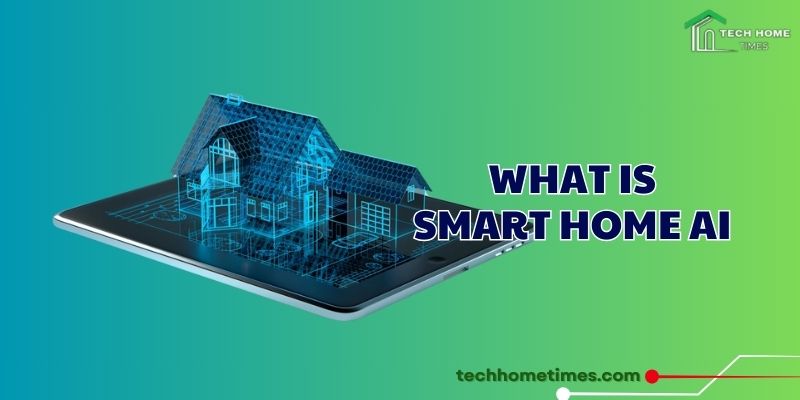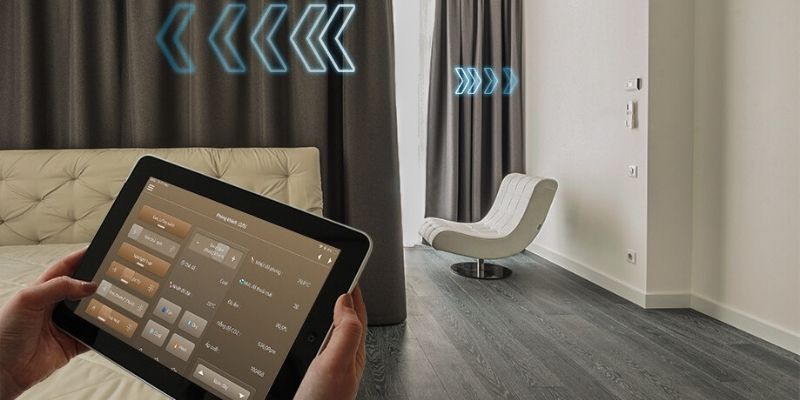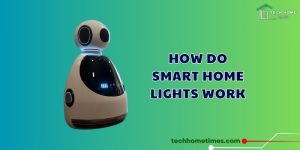Defining – What is Smart Home AI?

Understanding what is smart home AI is crucial to grasping the next evolution of intelligent living spaces. This analysis will delve into a clear definition of what is smart home AI, illustrate its capabilities through real-world examples, explore the significant benefits and future potential it holds, and address the key challenges and considerations associated with its implementation.
Contents
What is Smart Home AI?

At its core, what is smart home AI refers to the integration of artificial intelligence algorithms and machine learning models within a network of interconnected devices and systems within a residential environment.
Unlike traditional smart homes that operate based on pre-programmed rules and simple sensor triggers, smart home AI systems possess the ability to learn from data, analyze patterns, make intelligent predictions, and adapt their behavior over time to optimize the living experience. This imbues the home with a level of autonomy and personalization that goes far beyond basic automation.
The intelligence stems from various AI techniques, including natural language processing (NLP) for voice interaction, computer vision for object and facial recognition, and machine learning for predictive automation and personalized recommendations. Therefore, what is smart home AI can be defined as the application of these AI capabilities to enhance the functionality, efficiency, security, and user-friendliness of a connected home.
Examples of Smart Home AI in Action

To truly understand what is smart home AI, examining real-world applications provides valuable insight into its practical capabilities:
AI-Powered Voice Assistants
Intelligent virtual assistants like Amazon Alexa, Google Assistant, and Apple Siri, when integrated into smart home ecosystems, exemplify what is smart home AI in action.
They utilize NLP to understand complex voice commands, learn user preferences, and proactively offer relevant information or automate tasks based on context and routines. Their ability to control a wide range of smart devices through natural language demonstrates the power of AI in simplifying home interaction.
Intelligent Thermostats
Smart thermostats that learn user heating and cooling preferences over time and automatically adjust temperature settings for optimal comfort and energy efficiency are a prime example of what is smart home AI.
These devices analyze historical data, occupancy patterns, and even weather forecasts to predict and implement the most efficient climate control strategies, minimizing manual adjustments and maximizing energy savings.
AI-Enhanced Security Systems
Modern smart security systems leverage AI for advanced threat detection and analysis.
Features like facial recognition in smart cameras to identify familiar faces and alert homeowners to unknown individuals, anomaly detection in sensor data to identify suspicious activity patterns, and intelligent alerts that filter out false positives (like moving trees) showcase the practical what is smart home AI in safeguarding homes.
Smart Lighting with AI Adaptability
Beyond simple on/off control and scheduling, AI-powered smart lighting systems can adapt to user preferences and ambient conditions. They can learn preferred brightness and color temperature settings for different times of day or activities and automatically adjust accordingly.
Some systems even integrate with occupancy sensors and AI algorithms to turn lights on or off based on presence and natural light levels, demonstrating an intelligent application of AI for energy efficiency and convenience.
Advanced robot vacuums utilize AI-powered Simultaneous Localization and Mapping (SLAM) for efficient navigation and cleaning.
Furthermore, object recognition capabilities allow them to identify and avoid obstacles like furniture, cables, and even pet waste, showcasing what is smart home AI in creating more autonomous and effective cleaning solutions.
The Benefits and Potential of Smart Home AI

The integration of AI into smart homes offers a multitude of compelling benefits and unlocks significant future potential:
- AI enables a higher level of automation that is proactive and adaptive, anticipating user needs and automating tasks without explicit commands, leading to a more effortless living experience.
- AI algorithms can optimize energy consumption across various smart home devices, resulting in lower utility bills and a more sustainable lifestyle.
- AI-powered security features offer more intelligent and reliable protection for homes and their occupants.
- AI learns individual preferences and tailors the home environment to specific needs, creating a more comfortable and enjoyable living space.
- AI-driven voice control and personalized assistance features can make smart homes more accessible for individuals with disabilities or limited mobility.
- In the future, AI could potentially predict appliance failures or system malfunctions, allowing for proactive maintenance and preventing costly repairs.
Challenges and Considerations in Smart Home AI

Despite the numerous benefits, the widespread adoption of smart home AI also presents several challenges and considerations:
- The collection and analysis of vast amounts of personal data by AI-powered smart home devices raise significant concerns about privacy and security. Robust data protection measures and transparent data usage policies are crucial.
- The lack of universal standards and the fragmentation of the smart home market can hinder the seamless integration of AI across different devices and ecosystems.
- Advanced AI features often come with a higher price tag, potentially creating a barrier to entry for some consumers.
- AI algorithms are trained on data, and biases in that data can lead to unfair or discriminatory outcomes in smart home applications. Ethical considerations in the development and deployment of smart home AI are paramount.
- Ensuring the reliability and robustness of AI algorithms in critical smart home functions, such as security and safety systems, is essential.
Tech Home Times believes, defining what is smart home AI reveals a paradigm shift in how we interact with our living spaces. It represents the fusion of connectivity with intelligence, enabling homes to learn, adapt, and proactively respond to our needs.






